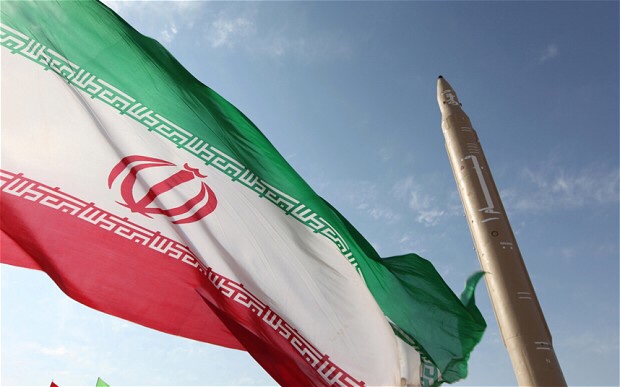 The atomic spectre returns to haunt Iran | Ali Alfoneh | AW
The atomic spectre returns to haunt Iran | Ali Alfoneh | AWIranian President Hassan Rohani probably thinks he, rather than North Korea’s dictator Kim Jong-un, should have been the foreign leader shaking US President Donald Trump’s hand in Singapore.
After all, Rohani was instrumental in committing Iran to the Joint Comprehensive Plan of Action (JCPOA), which severely restricts Tehran’s nuclear activities and has it submit to a technologically advanced inspection regime, while Kim and his predecessors have a record of broken promises, mendacity and deceit, which has helped Pyongyang develop an effective nuclear deterrence.
Even so, Trump withdrew from the Iran nuclear deal and, as of June 12, seems to readily accept Kim’s vague pledges of denuclearisation.
So, what is Tehran’s view of the Singapore summit? Twenty-four hours after the meeting, there was remarkably little official reaction.
The day before the Trump-Kim meeting, Iranian Foreign Ministry spokesman Bahram Qassemi cautioned North Korea that Iran was “not optimistic” that Trump would remain committed to his pledges. Within hours of the summit, cabinet spokesman Mohammad-Bagher Nobakht made the following comment: “With whom is the North Korean leader negotiating? It is not clear that he would not cancel the agreement before returning home.”
Despite their public statements, Qassemi and Nobakht are probably aware that North Korea is more likely than the United States to violate any agreement. The reasoning is well parsed, not just in Tehran but elsewhere. Why would North Korea surrender its nuclear weapons when they were the only reason Washington was forced to treat Pyongyang as an equal partner? Why would Pyongyang give up the very thing that enabled Kim to extract military concessions from Trump?
What North Korea achieved was the course of action contemplated by the Islamic Revolutionary Guard Corps (IRGC) and regime hardliners prior to the Iran nuclear agreement. The logic was that Iran should get the bomb at any cost, after which Washington would accommodate itself to a nuclear-armed Iran.
Rohani and the regime’s technocratic elites, however, fearing war and under immense pressure from the international sanctions regime, favoured a negotiated solution to the crisis over Iran’s nuclear programme. For a while, Iranian Supreme Leader Ayatollah Ali Khamenei oscillated between the two camps. Eventually, he sided with the Rohani camp, authorised the JCPOA and called it “heroic flexibility.”
In the weeks between Trump’s rejection of the Iran nuclear deal and his vague agreement with North Korea, Rohani has tried to salvage whatever possible from the JCPOA. Hardly a day passes without Rohani or Foreign Minister Mohammad Javad Zarif reaching out to the remaining signatories to the Iran nuclear deal. The attempt protects Iran as much as possible from the effects of reimposed US sanctions.
The hard-line Iranian media seems unimpressed with Rohani’s diplomatic efforts, with the JCPOA in ruins and Kim’s defiant strategy triumphant.
On June 13, Hossein Shariatmadari, editor of Kayhan, attacked Rohani for “five years of wasting opportunities” and dreaming futile dreams. He said: “The difference between hope and reality is just as written in the Holy Quran: ‘Those who disbelieve, their deeds are as a mirage in a desert. The thirsty one supposeth it to be water till he cometh unto it and findeth it naught.’”
Unfortunately for Kayhan, it was with Khamenei’s authorisation that Rohani navigated the caravan of the state towards the mirage.
Javan, the unofficial mouthpiece of the IRGC, made a similar criticism of Rohani but found solace in Khamenei’s recent instructions to prepare to increase uranium enrichment but both Javan and the IRGC would be wrong if they read uranium enrichment as a sign Iran’s exit from the nuclear agreement is on the agenda. When he gave his instructions, Khamenei said the government should do so “within the boundaries of the nuclear deal.”
Exiting the deal and pushing for a nuclear weapons strategy are nevertheless likely to dominate the IRGC’s demands from the Rohani government. The atomic spectre once again haunts Iranian politics.
No comments:
Post a Comment